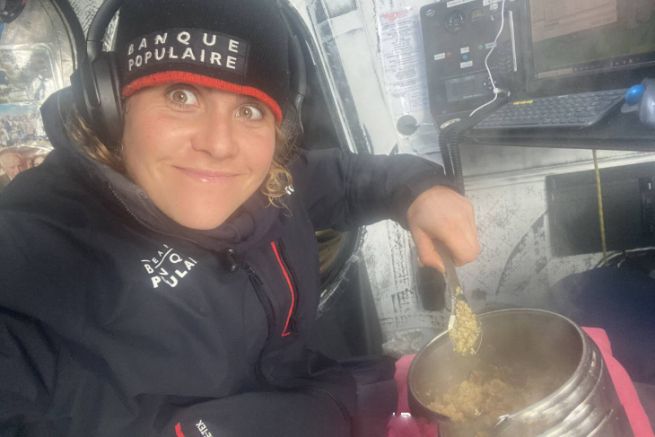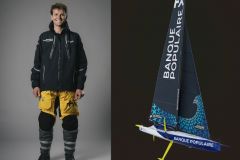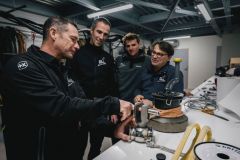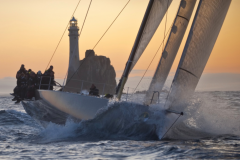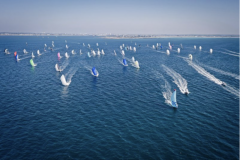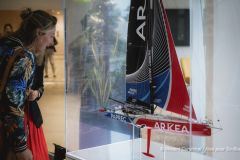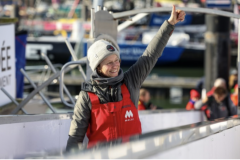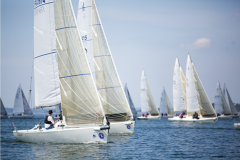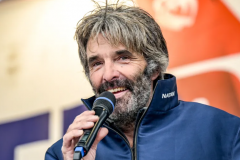An extension run
While Alex Thomson had bet that he would be able to complete this ninth edition of the Vendée Globe in 66 days, the weather decided otherwise... Setting out from Les Sables-d'Olonne on 8th November 2020 for a long round the world voyage of 24?296 miles, the 27 solo sailors still racing (out of the 33 starters) had no idea that the route would be so full of pitfalls.
The weather is far from being on their side, as the often changing wind does not allow the foilers to show all their abilities. Or on the contrary, the conditions are too strong, requiring the skippers to brake their flying machines.
Thus, no record was broken, unlike the previous edition, in which Armel le Cléac'h emerged victorious in 74 days, 3 days ahead of François Gabart in 2012.
Currently battling with the high pressure that is blocking their route south of the Atlantic, the race is far from over. A new zone of calm is also announced for the end of the week. The trade winds are not well established at the moment in the South Atlantic and the weather patterns are particularly complex.
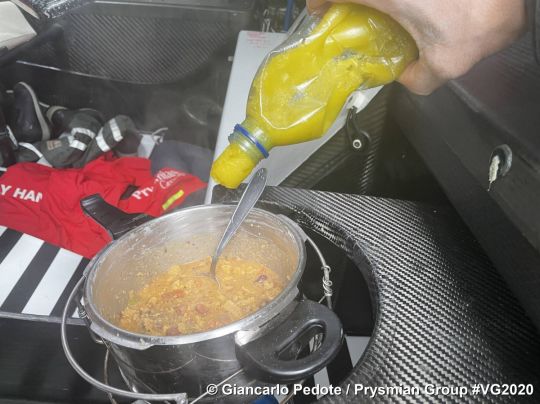
Time to cross the great capes
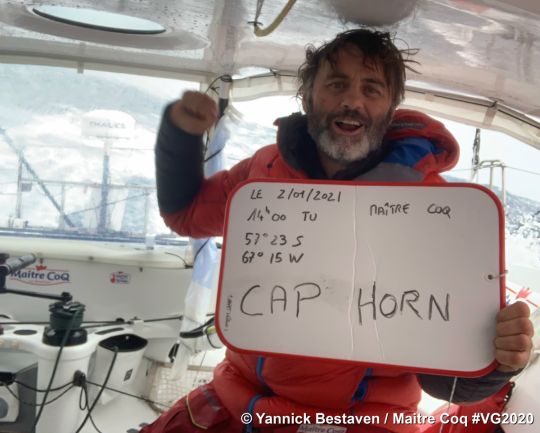
Ecuador
Alex Thomson (Hugo Boss) overtook Ecuador in 9 days 23 hours and 59 minutes, without breaking his 2016 record of 9 days 17 hours and 03 minutes.
Cape of Good Hope
Charlie Dalin (Apivia) rounded the Cape of Good Hope after 22 days 9 hours 51 minutes, without once again beating the record previously set by the skipper of Hugo Boss in 17 days 22 hours 58 minutes. The Briton had taken less than 8 days from the Equator to reach South Africa four years ago, while the skipper of Apivia has racked up more than twelve days with 8?505 miles on the clock, largely due to the detour of the Saint Helena High in the South Atlantic
Cape Leeuwin
The weather didn't smile on the solo sailors over this first half of the course, so it's after 34 days and 20 hours since Les Sables-d'Olonne that Charlie Dalin will have passed the south-western tip of Australia, the same time to within two hours of Alex Thomson in 2012, who was in third place at the time. In comparison, Armel le Cléac'h had crossed it in 28 days 20 hours and 12 minutes, five days less than the previous reference time set by François Gabart in 2012.
Yannick Bestaven (Maître Coq) rounded Cape Horn in the lead after 55 days 0 hours and 22 minutes of racing, compared with 47 days 0 hours and 32 minutes for Armel le Cléac'h in 2016, 8 days behind the record set by his predecessor.
The unbeaten race record in 2021?
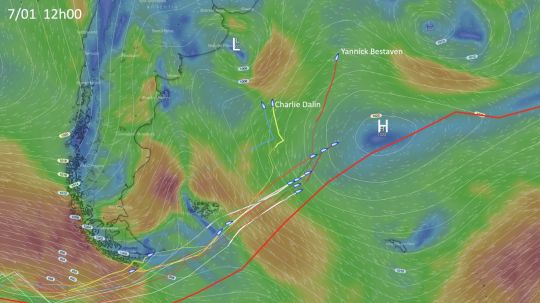
With 8 days behind the previous winner, it's hard to believe that the record of 74 days of racing has been broken. And yet this is the pattern on which the skippers of this 9th edition are based. The two leaders sailing on hydrofoil boats - Yannick Bestaven and Charlie Dalin - have embarked on 75 days of food.
As for Clarisse Crémer and Benjamin Dutreux - respectively 12 e and 6 e in the rankings - have eaten for 90 days. The two sailors with a drifting boat chose the reason.
Sebastien Destremau will be remembered for completing his round-the-world tour at the 18 e place in 124 days, 12 hours, 38 minutes and 18 seconds in 2016. The latter had had to ration his food and had even tried his hand at fishing, but without much success... A pattern which awaits the skippers over the next few days?
